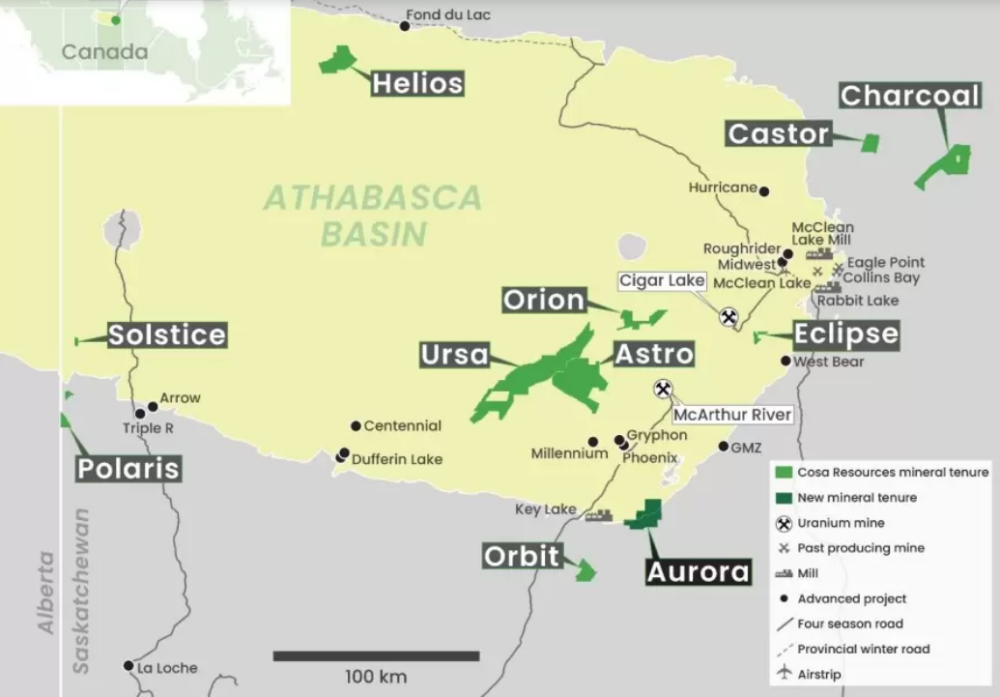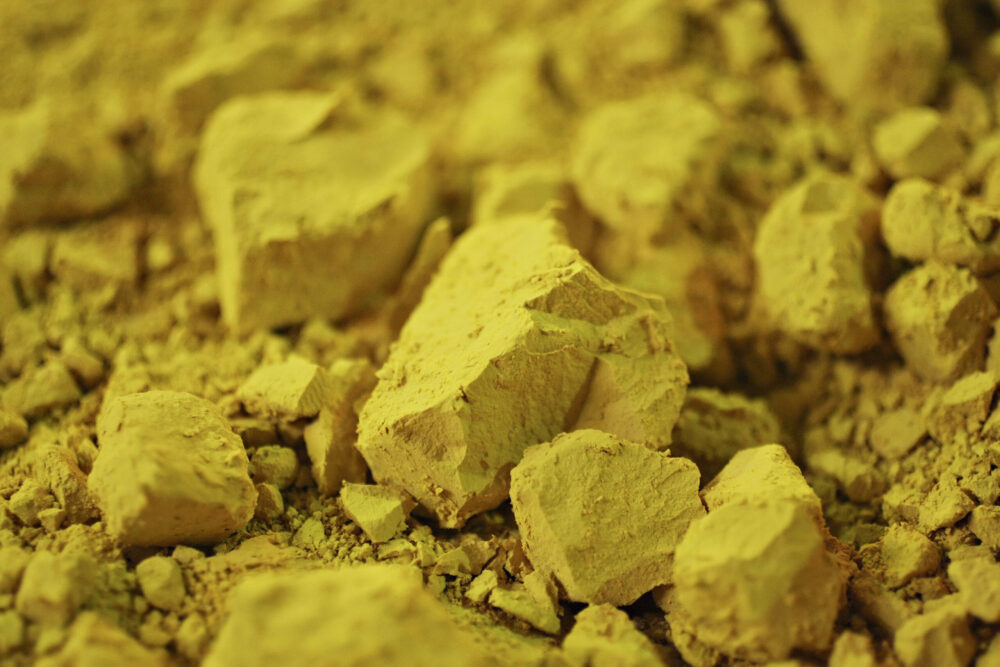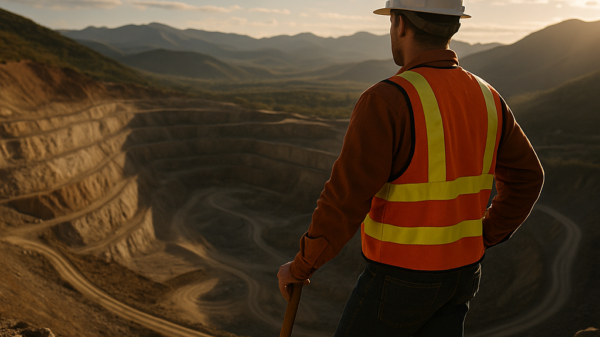Cosa Resources Corp. (TSXV: COSA) (OTCQB: COSAF) (FSE: SSKU) expanded its exploration portfolio by over 16,800 hectares, closing an acquistion that granted them full ownership of the Aurora Project in Saskatchewan’s Athabasca Basin.
The company had originally announced the acquisition earlier this month, and closed it on Tuesday. Cosa purchased all seven mineral claims that make up Aurora from an arm’s length third-party vendor in exchange for $20,000 in cash and issued 150,000 common shares.
The Aurora property covers 17 kilometers along the southeastern rim of the Athabasca Basin between Key Lake and the GMZ uranium discovery. Historical drilling records reveal several meter-scale zones exhibiting intense hydrothermal alteration in multiple areas throughout the property.
The company anticipates the sandstone thickness will be less than 100 meters. Also, in the section devoid of sandstone, erosion is believed to have removed less than 150 meters of basement.
Aurora lies 16 kilometers to the east of Cameco Corporation‘s (TSX: CCO) (NYSE: CCJ) Key Lake Mill and former Key Lake Mine. Between 1983 and 2002, the Key Lake Mine produced 209.8 million pounds of U3O8 with an average grade of 2.3 per cent U3O8. The Key Lake Mill, one of Saskatchewan’s three licensed uranium mills, currently processes ore from the McArthur River Mine.
Aurora sits 40 kilometers southwest of the recently discovered GMZ uranium zone. Access and infrastructure are in place at Aurora via the winter roads and the provincial powerlines.

Cosa’s portfolio of Athabasca Basin region uranium exploration projects. Image via Cosa Resources.
Read more: ATHA Energy to acquire Latitude Uranium and 92 Energy, creating industry’s largest uranium portfolio
Read more: ATHA Energy defines 18 high-priority prospective mining targets after EM survey
Aurora territory lacks the geophysical coverage as other projects
When comparing projects, the Aurora territory hasn’t had the same property-wide battery of electromagnetic geophysical coverage as other projects in the basin. This may put it a little behind in terms of cost effectiveness and preliminary work prior to drilling.
For example, ATHA Energy Corp. (CSE: SASK) (FRA: X5U) (OTCQB: SASKF) has been conducting surveys in the region, looking for new drill targets. The overall intent is to capitalize on the evenue-generating potential of the world’s current uranium cycle.
Additionally, early last month, Forum Energy Metals Corp. (TSX.V: FMC; OTCQB: FDCFF) and Traction Uranium Corp. (CSE: TRAC) (OTC: TRCTF) (FRA: Z1K) finished its initial review of an airborne magnetic, electromagnetic and radiometric survey on the Grease River Project, located along the north rim of the Athabasca Basin, Saskatchewan.
However, no other companies have drilled holes on the Aurora property since 1979. A look at the historical drill hole logs have led to discoveries of several zones of hydrothermal alteration.
“The amount of structure and alteration noted in historical drill logs has us eager to advance the property with an initial program of geophysical surveying to help define targets ahead of a drill campaign,” Keith Bodnarchuk, president and CEO of Cosa Resources, said.
“The proximity to the Key Lake Mill and lack of modern exploration makes Aurora a very compelling project as we continue our exploration efforts through 2024, and we look forward to updating the market on our progress.”
Cosa intends on following up with a battery of electromagnetic and gravity surveys on the property. These will be accompanied by planned surveys for the company’s Orbit Project in the second and third quarters of next year.
ATHA Energy Corp. is a sponsor of Mugglehead news coverage














